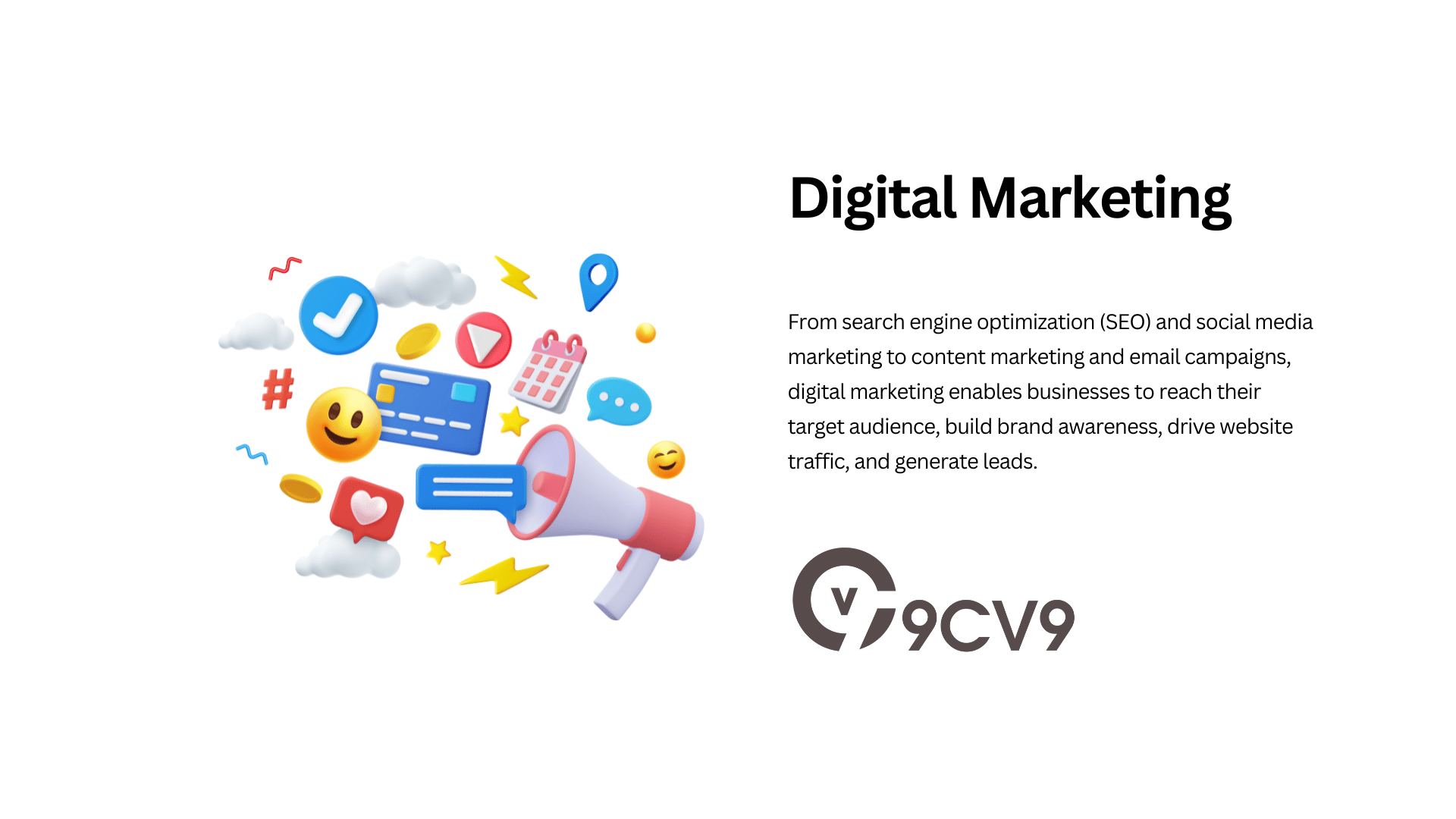Key Takeaways
- Discover Exciting Opportunities: Explore the top 7 business ideas for entrepreneurs in 2023 and uncover exciting opportunities to thrive in the ever-evolving business landscape.
- Unleash Your Entrepreneurial Superpowers: Unleash your superpowers and turn your business dreams into reality by embracing innovative ideas and strategies tailored for success in 2023.
- Stay Ahead of the Curve: Stay ahead of the competition by staying informed about the latest trends, technologies, and strategies in the business world. Position yourself for success by embracing new ideas and adapting to the ever-changing entrepreneurial landscape of 2023.
Welcome, ambitious souls and enterprising minds.
In the ever-evolving realm of business, where innovation reigns supreme, it’s time to fasten your seatbelts and prepare for a journey into the future.
Today, we’re diving headfirst into a humorous yet enlightening exploration of the 7 top business ideas for aspiring entrepreneurs in the glorious year of 2023.
So grab a cup of ambition (or a mug of giggles) and let’s embark on this wild ride together.
Well, let’s face it: entrepreneurship can be a rollercoaster of emotions—equal parts excitement and hair-pulling frustration.
We’re here to remind you that a little laughter can go a long way in keeping those entrepreneurial spirits high and those entrepreneurial tears at bay.
So, whether you’re a seasoned visionary, a hopeful dreamer, or someone who stumbled upon this article while searching for “unicorn-shaped coffee mugs” (hey, we won’t judge!), you’re in for a treat.
We’ll be unearthing a collection of business ideas that will make you scratch your head, chuckle, and maybe even say, “Wait, that’s actually brilliant!”
And who knows, one of these wacky ideas might just be the spark that ignites the fire of your entrepreneurial journey.
But remember, dear reader, humor aside, entrepreneurship is no laughing matter.
It requires dedication, perseverance, and a willingness to take calculated risks.
So, let’s strap on our imaginary jetpacks and dive into these ludicrous yet surprisingly promising business concepts that may just redefine entrepreneurship in 2023.
Before we embark on this comical adventure, a quick disclaimer: Some of these ideas might sound too ridiculous to be true, and others might make you wonder if we’ve been sipping a little too much creative juice.
However, remember that in the vast landscape of entrepreneurship, it’s often the seemingly absurd ideas that catapult individuals into unparalleled success.
So, without further ado, let’s dive into this smorgasbord of entrepreneurial oddities and discover the 7 most hilariously profitable business ideas that just might inspire the next generation of titans in 2023.
Buckle up, folks, it’s going to be a wild ride.
Before we venture further into this article, we like to share who we are and what we do.
About 9cv9
9cv9 is a business tech startup based in Singapore and Vietnam, with a strong presence all over the world.
With over six years of startup and business experience, and being highly involved in connecting with thousands of companies and startups, the 9cv9 team has listed some important learning points in this overview of the top 7 business ideas for Entrepreneurs in 2023.
If your newly founded startup needs recruitment and headhunting services to hire top quality startup employees, you can use 9cv9 headhunting and recruitment services to hire top talents and candidates. Find out more here, or send over an email to [email protected].
Or post 1 free job posting here at 9cv9 Hiring Portal.
7 Top Business Ideas for Entrepreneurs in 2023
- Online Sales
- Create a Generative AI Startup
- Online Teaching
- Consulting Agency
- Software App Development
- Home Care Service
- Digital Marketing
Idea#1: Online Sales – Unleashing the Power of Secondhand Success

In the digital age, where one person’s clutter is another person’s treasure, online reselling has emerged as a lucrative business opportunity for entrepreneurs.
With the rise of e-commerce platforms and the increasing popularity of sustainable consumption, the world of online reselling is ripe with potential.
Online peer-to-peer marketplace platforms, such as eBay, Craigslist, Facebook Marketplace, and similar channels, have significantly streamlined the process for individuals to swiftly monetize their unwanted possessions.
Through a few effortless clicks, you can effortlessly list and vend a wide array of merchandise to prospective buyers.
So, strap on your entrepreneurial boots as we delve into the ins and outs of this thriving business idea.
Explanation of Online Reselling
Online reselling involves acquiring pre-owned items and reselling them through online marketplaces, such as eBay, Amazon, or specialized reselling platforms.
It’s a modern-day treasure hunt where entrepreneurs can turn their keen eye for valuable items and their knack for negotiation into profitable ventures.
From vintage clothing and electronics to collectibles and home decor, the possibilities are vast, limited only by your imagination and market demand.
Potential Market Size and Target Audience
The market for online reselling is expansive, encompassing a wide range of demographics and interests.
You can tailor your niche based on your personal interests or cater to a broader audience.
For instance, you might specialize in vintage fashion for fashion-conscious millennials or focus on electronic gadgets for tech enthusiasts.
By identifying your target audience, you can curate your inventory and marketing efforts to maximize profitability.
Key Benefits and Unique Selling Points
Online reselling offers several enticing benefits that make it an appealing business idea for entrepreneurs
a. Low Startup Costs: Compared to traditional brick-and-mortar businesses, online reselling has minimal upfront costs. You can start small by sourcing items from thrift stores, garage sales, or even your own closets, gradually scaling your business as you generate revenue.
b. Flexibility and Freedom: As an online reseller, you have the freedom to work from anywhere with an internet connection. Whether you prefer the comfort of your home office or want to embrace the nomadic lifestyle, the choice is yours. You can set your own schedule and be your own boss.
c. Sustainability and Ethical Consumption: With the growing awareness of sustainability and the desire to reduce waste, online reselling aligns perfectly with the principles of ethical consumption. By giving pre-loved items a second life, you contribute to the circular economy while satisfying the demand for unique, affordable finds.
Profitability and Revenue Potential
The profitability of online reselling depends on various factors, including your sourcing strategies, pricing expertise, and marketing efforts.
It’s essential to research market trends, identify high-demand items, and optimize your pricing to maximize profits.
As you establish a reputation and customer base, you can explore avenues such as dropshipping or expanding into niche markets to diversify your revenue streams.
Required Skills, Resources, and Investment
To thrive in the world of online reselling, certain skills and resources are valuable:
a. Research and Knowledge: Stay updated on market trends, popular brands, and emerging niches. Knowledge about pricing, item condition, and online marketplaces will help you make informed decisions and set competitive prices.
b. Sourcing Channels: Build a network of reliable sourcing channels, including thrift stores, garage sales, online auctions, and wholesale suppliers. Establishing relationships with suppliers or developing a system for efficient sourcing is key.
c. Online Presence: Create a strong online presence by leveraging social media platforms, developing a user-friendly website, or utilizing reselling-specific apps and platforms. High-quality product images, compelling descriptions, and customer engagement can enhance your brand visibility.
d. Shipping and Logistics: Familiarize yourself with shipping options, packaging techniques, and efficient logistics management. Providing excellent customer service and reliable shipping will earn you repeat business and positive reviews.
e. Investment: While online reselling offers a low-cost startup, there are still some essential investments to consider.
These may include initial inventory purchases, storage solutions for your items, packaging materials, shipping supplies, and potentially investing in marketing efforts to boost your visibility. As your business grows, you may also need to allocate funds for scaling operations, expanding your inventory, or hiring additional help.
Potential Challenges and How to Overcome Them
Like any business, online reselling comes with its fair share of challenges. Being aware of these hurdles can help you proactively address them:
a. Competition: The online reselling market can be highly competitive, especially for popular items. To stand out, focus on finding unique inventory, providing exceptional customer service, and establishing a strong brand identity. Niche specialization can also give you a competitive edge.
b. Inventory Management: Managing inventory can become overwhelming, especially as your business grows. Implementing an inventory tracking system and optimizing storage solutions can streamline operations and ensure efficient order fulfillment.
c. Quality Control: It’s crucial to accurately assess the condition of items before listing them for sale. Detailed product descriptions, clear images, and transparency about any flaws will build trust with your customers and reduce the chances of returns or negative feedback.
d. Market Volatility: Market trends and demand for specific items can fluctuate. Stay updated on industry news, be adaptable in sourcing inventory, and diversify your product offerings to mitigate the risks associated with market volatility.
Online reselling offers an exciting opportunity for entrepreneurs to turn their passion for finding hidden gems into a profitable venture.
By leveraging e-commerce platforms, honing your sourcing skills, and embracing the principles of sustainability, you can carve a niche for yourself in the thriving world of online reselling.
Remember to stay adaptable, continuously learn, and delight your customers with exceptional service.
So, grab your magnifying glass, sharpen your negotiation skills, and embark on this thrilling journey as an online reseller in 2023.
Idea#2: Create a Generative AI Startup – Unleashing the Power of Artificial Creativity

In the realm of technological advancements, the field of artificial intelligence (AI) has witnessed remarkable growth and innovation.
One fascinating avenue within AI is generative AI, which holds the potential to revolutionize creativity and content creation.
The immense popularity of ChatGPT kickstarted the new Web4, the era of generative AI technology, and enabled countless startups to leverage its popularity to stardom.
In this section, we’ll explore the captivating world of creating a generative AI startup and how it can unlock endless possibilities.
If you need to hire some top Generative AI employees for your startup, then look no further than Vietnam, one of the best hiring places in the world for Generative AI staff and employees.
Explanation of Generative AI
Generative AI involves developing algorithms and models that possess the ability to create original and innovative content, such as images, music, videos, and even written works.
Unlike traditional AI systems that rely on predefined rules, generative AI utilizes machine learning techniques, including deep neural networks, to learn from existing data and generate new, unique outputs.
It enables the AI system to produce content that mimics human creativity and imagination.
Potential Market Size and Target Audience
The potential market for generative AI is vast, spanning various industries and sectors.
Creative professionals, such as artists, designers, musicians, and writers, are primary target audiences who can benefit from generative AI tools to enhance their creative process.
Additionally, industries like marketing, entertainment, gaming, and advertising can leverage generative AI to develop unique content, immersive experiences, and personalized recommendations.
Identifying specific niches and tailoring your generative AI solutions to address their pain points will help you carve a niche in the market.
Key Benefits and Unique Selling Points
Generative AI startups offer numerous benefits and unique selling points that set them apart:
a. Creative Empowerment: Generative AI provides creative professionals with a powerful tool to augment their artistic abilities. By leveraging generative AI algorithms, artists can explore new realms of creativity, discover fresh ideas, and accelerate the content creation process.
b. Efficiency and Scalability: Generative AI systems can generate content at an unprecedented speed and scale. This capability allows businesses to streamline their production processes, create personalized content at scale, and cater to the growing demands of their target audience.
c. Personalization and Customization: Generative AI enables personalized experiences by tailoring content to individual preferences. This level of customization enhances user engagement, boosts customer satisfaction, and cultivates brand loyalty.
d. Innovative Content Creation: With generative AI, businesses can create unique, one-of-a-kind content that captures attention, stands out from the competition, and resonates with their target audience. From stunning visual designs to original musical compositions, generative AI unlocks a world of untapped creative possibilities.
Profitability and Revenue Potential
The profitability of a generative AI startup depends on various factors, including the uniqueness of your offerings, market demand, pricing strategies, and your ability to cater to specific industries or niches.
Revenue streams can be diversified through various means, such as licensing generative AI tools, providing custom generative content creation services, offering subscription-based access to generative AI platforms, or partnering with businesses to develop tailored generative AI solutions.
Most Generative AI startups are highly profitable and can generate top profits. We have written previously on the 8 Generative AI Startup Ideas you can use to Earn Money in 2023.
No wonder there are so many millionaires these days.
Required Skills, Resources, and Investment
To establish a successful generative AI startup, certain skills, resources, and investments are crucial:
a. Technical Expertise: A deep understanding of machine learning, neural networks, and generative AI algorithms is essential. Recruiting a team of experienced AI engineers and data scientists can help you develop cutting-edge generative AI models. Using 9cv9 Recruitment Services can boost and accelerate your hiring quickly. Find out more here, or send over an email to [email protected].
b. Data Acquisition and Curation: Generative AI systems require substantial amounts of high-quality data for training. Establishing partnerships with data providers or developing methods to curate relevant datasets will be key.
c. Infrastructure and Computing Power: Generative AI requires significant computing power to train complex models. Investing in powerful hardware or utilizing cloud computing services can support your computational needs. Additionally, setting up a robust infrastructure to store and process large datasets is crucial.
d. Intellectual Property Protection: As a generative AI startup, it’s essential to navigate intellectual property rights and protect your algorithms, models, and generated content. Consulting with legal experts specializing in AI and intellectual property can help safeguard your innovations.
e. Investment: Building a generative AI startup requires a significant investment in research and development, talent acquisition, infrastructure, and marketing efforts. Securing funding through venture capital, angel investors, or government grants can provide the financial resources needed to propel your startup forward.
Potential Challenges and How to Overcome Them
While the potential of generative AI is vast, there are challenges to be mindful of:
a. Ethical Considerations: Generative AI raises ethical questions regarding ownership, authenticity, and potential misuse of generated content. Being proactive in addressing ethical concerns through responsible data usage, transparency, and user education can build trust and mitigate potential backlash.
b. Quality Control: Ensuring the quality and coherence of generated content can be challenging. Continuous improvement of generative AI algorithms, rigorous testing, and human oversight can help maintain the desired level of quality and avoid generating misleading or inappropriate content.
c. Market Education and Adoption: Educating potential customers about the benefits and applications of generative AI may be necessary to drive adoption. Demonstrating real-world use cases, offering training programs, and providing support can accelerate the acceptance and adoption of generative AI solutions.
d. Rapid Technological Advancements: The field of AI evolves rapidly, and staying up-to-date with the latest advancements and research is crucial. Regularly investing in research and development, fostering partnerships with academic institutions, and participating in industry conferences and events will help you stay at the forefront of the generative AI landscape.
The world of generative AI holds immense potential for entrepreneurs looking to capitalize on the power of artificial creativity.
By leveraging advanced algorithms and machine learning techniques, generative AI startups can transform industries, revolutionize content creation, and empower artists and businesses with unprecedented creative possibilities.
As you embark on this exciting journey, remember to adapt to evolving technologies, prioritize ethical considerations, and stay at the forefront of innovation.
So, take the leap into the realm of generative AI and unlock a future where artificial creativity knows no bounds.
If you are keen to kickstart on your Generative AI startup, then you definitely need to hire some top AI engineers. We recommend checking Vietnam as a country in which there are abundant of tech AI engineers for you.
You can easily get started on remote tech hiring by reading our top guide here.
Idea#3: Online Teaching – Empowering Minds Through Digital Education

In today’s digital age, online teaching has emerged as a powerful and convenient method to impart knowledge and skills to students worldwide.
With advancements in technology and the widespread accessibility of the internet, the field of online education has experienced exponential growth.
In this section, we’ll explore the exciting world of online teaching, its benefits, and how you can create a successful online teaching venture.
Explanation of Online Teaching
Online teaching refers to the delivery of educational content, courses, and tutoring sessions through digital platforms.
It leverages video conferencing tools, learning management systems, and interactive online resources to facilitate remote learning.
From K-12 education to higher education and professional development, online teaching caters to learners of all ages and backgrounds.
Potential Market Size and Target Audience
The potential market for online teaching is vast, encompassing students of all ages, lifelong learners, and professionals seeking career advancement.
You can choose to focus on a specific niche, such as language instruction, STEM subjects, test preparation, or specialized skills training.
Identifying your target audience and their specific educational needs will help you tailor your offerings and marketing strategies effectively.
Key Benefits and Unique Selling Points
Online teaching offers several benefits and unique selling points that make it an attractive option for learners and entrepreneurs alike:
a. Accessibility and Convenience: Online teaching transcends geographical boundaries, allowing students to access quality education from anywhere in the world. It offers flexibility in scheduling, enabling learners to balance their education with work, family, or other commitments.
b. Personalized Learning: Online teaching platforms can offer personalized learning experiences through adaptive learning technologies and individualized instruction. Students can progress at their own pace, receive targeted feedback, and access supplementary materials to enhance their understanding.
c. Cost-Effectiveness: Online teaching eliminates the need for physical infrastructure and reduces overhead costs associated with traditional brick-and-mortar institutions. This cost-effectiveness makes online education more affordable for students and presents an opportunity for entrepreneurs to provide quality education at competitive prices.
d. Global Reach and Scaling Potential: With online teaching, you can reach a global audience without the limitations of physical classroom space. This scalability allows you to expand your teaching business, offer specialized courses, and collaborate with educators and experts from around the world.
Profitability and Revenue Potential
The profitability of online teaching depends on various factors, including your expertise, target market, pricing strategies, and marketing efforts.
Revenue streams can be diversified through multiple channels, such as offering individual courses or bundled packages, providing subscription-based access to a learning platform, or offering personalized tutoring services.
Additionally, exploring partnerships with educational institutions, creating and selling digital learning materials, or conducting webinars and workshops can further boost your revenue potential.
Required Skills, Resources, and Investment
To succeed in the field of online teaching, certain skills, resources, and investments are crucial:
a. Subject Matter Expertise: Possessing in-depth knowledge and expertise in your chosen subject area is essential. You should have a solid understanding of the curriculum, teaching methodologies, and effective instructional techniques.
b. Technological Proficiency: Familiarity with online teaching platforms, video conferencing tools, learning management systems, and content creation software is necessary. Invest time in acquiring the necessary technical skills or consider collaborating with tech-savvy individuals to assist you.
c. Engaging Content Creation: Develop engaging and interactive teaching materials, including videos, presentations, quizzes, and assignments, to deliver a rich learning experience. Incorporate multimedia elements, gamification, and real-world examples to enhance student engagement.
d. Marketing and Branding: Building a strong online presence and effectively marketing your teaching services is essential. Establishing a professional website, leveraging social media platforms, creating informative blog posts, and engaging with relevant online communities can help you reach your target audience. Additionally, cultivating positive reviews and testimonials from satisfied students can enhance your credibility and attract new learners.
e. Investment: Starting an online teaching venture requires some initial investment. This may include purchasing necessary equipment like a reliable computer, webcam, microphone, and a stable internet connection. Additionally, investing in professional development opportunities, acquiring educational resources, and potentially outsourcing certain tasks can contribute to the success of your online teaching business.
Potential Challenges and How to Overcome Them
While online teaching presents numerous opportunities, there are challenges to consider.
Being aware of these challenges can help you address them effectively:
a. Technical Issues: Connectivity problems, software glitches, or hardware malfunctions can disrupt the learning experience. Be prepared to troubleshoot technical issues promptly and have backup plans in place, such as alternative communication channels or access to technical support.
b. Student Engagement and Motivation: In an online learning environment, it can be challenging to keep students engaged and motivated. Incorporate interactive elements, provide regular feedback and encouragement, and foster a sense of community through discussion forums or virtual classrooms to create an engaging and supportive learning experience.
c. Competing with Established Institutions: Online teaching can be a competitive field, with established educational institutions and experienced educators already catering to the market. Differentiate yourself by offering unique teaching approaches, specialized expertise, personalized attention, and a strong emphasis on student success.
d. Building Trust and Credibility: As an online educator, building trust and establishing credibility is crucial. Showcase your qualifications, experience, and expertise through a professional website, certifications, testimonials, and a transparent teaching methodology. Offer free resources or trial lessons to demonstrate the value you provide to prospective students.
Online teaching offers an exciting opportunity to share your knowledge, expertise, and passion for education with a global audience.
Through the power of digital technology, you can empower minds, foster lifelong learning, and create a profitable venture.
By leveraging the accessibility, convenience, and scalability of online education, you can make a positive impact on the lives of learners while building a successful teaching business.
Embrace the ever-evolving landscape of online education, continuously refine your teaching strategies, and adapt to the changing needs of your students.
So, get ready to embark on this fulfilling journey of online teaching and unlock the potential of digital education.
Idea#4: Consulting Agency – Providing Expert Guidance for Business Success

In the dynamic and competitive business landscape, organizations often seek expert advice and guidance to navigate challenges, make informed decisions, and achieve sustainable growth.
This is where consulting agencies play a pivotal role.
In this section, we’ll delve into the world of consulting agencies, exploring their importance, the services they offer, and how you can establish a successful consulting agency.
Importance of Consulting Agencies
Consulting agencies offer specialized knowledge, expertise, and strategic insights to businesses across various industries.
They help organizations tackle complex problems, capitalize on opportunities, optimize operations, and drive innovation.
Consulting agencies provide an objective perspective, unbiased recommendations, and access to best practices, empowering businesses to make informed decisions and achieve their goals effectively.
Services Offered by Consulting Agencies
Consulting agencies provide a wide range of services tailored to meet the specific needs of their clients.
Some common services include:
a. Strategic Planning and Business Development: Consulting agencies assist businesses in developing effective strategies, setting goals, and identifying growth opportunities. They conduct market research, and competitive analysis, and help organizations create comprehensive business plans.
b. Process Optimization and Operational Efficiency: Consulting agencies help streamline business processes, identify bottlenecks, and implement efficiency measures. They conduct process audits, propose improvements, and provide guidance on optimizing workflows, reducing costs, and enhancing productivity.
c. Financial Management and Analysis: Consulting agencies offer financial expertise, assisting businesses in financial planning, budgeting, and forecasting. They conduct financial analysis, identify areas for improvement, and provide recommendations for optimizing financial performance.
d. Marketing and Branding: Consulting agencies provide strategic guidance for marketing and branding initiatives. They conduct market research, develop marketing plans, create branding strategies, and help businesses enhance their online presence, customer engagement, and brand reputation.
e. Human Resources and Talent Management: Consulting agencies offer guidance in human resources management, including recruitment strategies, talent development, performance management, and employee engagement. They help organizations build effective teams and cultivate a positive work culture.
f. Technology and Digital Transformation: Consulting agencies assist businesses in adopting and integrating technology solutions to drive digital transformation. They provide insights on emerging technologies, assist with system implementation, and help organizations leverage digital tools for operational efficiency and competitive advantage.
Target Market and Industry Focus
Consulting agencies can cater to a wide range of industries or specialize in serving specific sectors.
Some agencies focus on niche industries, such as healthcare, finance, technology, or manufacturing, while others offer broad-based consulting services applicable across various sectors.
Identifying your target market and industry focus allows you to tailor your services, expertise, and marketing strategies to effectively reach and serve your clients.
Unique Selling Points and Benefits of Hiring a Consulting Agency
Consulting agencies offer several unique selling points and benefits to businesses:
a. Expertise and Specialized Knowledge: Consulting agencies employ professionals with specialized expertise and industry knowledge. Clients benefit from their insights, experience, and access to the latest industry trends and best practices.
b. Objectivity and Unbiased Recommendations: Consulting agencies provide an objective perspective, free from internal biases and vested interests. They offer unbiased recommendations and solutions based on data-driven analysis and industry expertise.
c. Cost-Effectiveness: Hiring a consulting agency can be more cost-effective than maintaining an in-house team of experts. Businesses can access a diverse range of skills and knowledge without the overhead costs associated with full-time employees.
d. Flexibility and Scalability: Consulting agencies offer flexibility in engagement duration and scope of services. Businesses can engage with agencies on a project-by-project basis or for long-term partnerships. This scalability allows organizations to adapt their consulting needs according to their evolving requirements.
e. Faster Results and Competitive Advantage: Consulting agencies help businesses achieve faster results by providing targeted solutions and implementing strategies efficiently. Their expertise and industry insights can give businesses a competitive edge, allowing them to stay ahead in the market and adapt to changing business environments.
Building a Successful Consulting Agency
To establish a successful consulting agency, consider the following key steps:
a. Define Your Niche: Determine your area of specialization and industry focus. Identify your unique value proposition and the specific expertise you bring to the table. This will help differentiate your agency from competitors and attract clients seeking your specific services.
b. Build a Strong Team: Assemble a team of experts with diverse skill sets and industry experience. Ensure that your team members possess the necessary qualifications, expertise, and interpersonal skills to deliver exceptional consulting services.
c. Develop Strategic Partnerships: Cultivate partnerships with complementary businesses or professionals to expand your service offerings and reach a broader client base. Collaborating with experts from different domains can enhance the value you provide to your clients.
d. Establish Thought Leadership: Position yourself and your agency as thought leaders in your industry. Publish informative blog posts, white papers, and case studies to showcase your expertise. Speak at industry conferences, participate in webinars, and contribute to relevant publications to establish credibility and gain visibility.
e. Leverage Technology: Embrace technology tools and platforms that enhance your consulting services. Utilize project management software, data analytics tools, and collaboration platforms to streamline operations, improve efficiency, and deliver value-added services to your clients.
f. Develop a Strong Network: Networking is crucial for a consulting agency’s success. Attend industry events, join professional associations, and engage with peers and potential clients. Actively participate in online communities and forums to build relationships, gain insights, and generate referrals.
g. Provide Excellent Customer Service: Deliver exceptional customer service to build long-term client relationships and generate positive word-of-mouth referrals. Communicate regularly with clients, understand their needs, and exceed their expectations through timely and effective solutions.
h. Continuously Learn and Adapt: The consulting industry evolves rapidly. Stay updated on industry trends, emerging technologies, and evolving client needs. Invest in professional development for yourself and your team to enhance your skills and knowledge.
As businesses strive for growth and success, the demand for expert guidance and strategic insights continues to rise.
By establishing a consulting agency, you can leverage your expertise, industry knowledge, and problem-solving skills to help organizations overcome challenges, optimize operations, and achieve their goals.
Through tailored services, industry focus, and a commitment to excellence, you can position your consulting agency as a trusted partner and valuable resource for businesses across various sectors.
Embrace the opportunities offered by the consulting industry, continuously innovate, and provide exceptional value to your clients.
So, take the leap and build a successful consulting agency that empowers businesses to thrive in an ever-changing business landscape.
Idea#5: Software App Development – Empowering Businesses with Innovative Solutions

In today’s digital age, software applications have become an integral part of our lives, driving efficiency, connectivity, and productivity.
Businesses across industries are increasingly relying on software apps to streamline operations, engage customers, and gain a competitive edge.
In this section, we’ll explore the world of software app development, its significance, the app development process, and how you can establish a successful app development business.
Importance of Software App Development
Software app development plays a crucial role in meeting the evolving needs of businesses and consumers.
Apps enable businesses to automate processes, enhance customer experiences, and access valuable data insights.
From mobile apps to web applications, businesses leverage software apps to improve efficiency, expand their reach, and unlock new opportunities.
The App Development Process
The app development process involves several stages, including ideation, design, development, testing, deployment, and ongoing maintenance.
Let’s explore each stage in detail:
a. Ideation and Conceptualization: This stage involves brainstorming app ideas, defining the app’s purpose, and identifying its target audience. Conduct market research, analyze competitors, and gather user feedback to refine your app concept.
b. Design: In this stage, create a visually appealing and user-friendly interface. Consider the app’s navigation flow, layout, color scheme, and branding elements. Prototype and wireframe your app to get a better understanding of its user experience.
c. Development: Develop the app’s functionality and features based on the design specifications. Use programming languages, frameworks, and development tools to build a robust and scalable app. Consider platform compatibility, such as iOS, Android, or web-based, and ensure a seamless user experience across devices.
d. Testing: Thoroughly test the app to identify and fix any bugs, usability issues, or performance concerns. Conduct functional testing, user acceptance testing, and compatibility testing to ensure the app functions as intended and meets user expectations.
e. Deployment: Prepare the app for release by submitting it to the relevant app stores or deploying it on web servers. Adhere to the platform-specific guidelines and requirements. Optimize the app’s listing with relevant keywords, descriptions, and visuals to enhance its discoverability.
f. Maintenance and Updates: Regularly monitor the app’s performance, collect user feedback, and address any issues that arise. Continuously update the app to introduce new features, enhance security, and improve user experience. Stay abreast of emerging technologies and industry trends to incorporate relevant updates into your app.
Target Market and Industry Focus
Software app development serves a broad range of industries, including e-commerce, healthcare, finance, education, entertainment, and more.
Identify your target market and industry focus to tailor your app development services, understand specific user requirements, and effectively market your solutions.
Services Offered by App Development Businesses
App development businesses offer a variety of services to cater to client needs.
Some common services include:
a. Custom App Development: Develop bespoke software applications tailored to meet specific business requirements. This involves understanding the client’s objectives, conducting feasibility studies, and creating customized solutions from scratch.
b. Mobile App Development: Create mobile applications for iOS, Android, or cross-platform environments. Develop apps that provide seamless user experiences, leverage device capabilities, and adhere to platform guidelines.
c. Web App Development: Build web-based applications that can be accessed via web browsers across different devices. Develop responsive web apps that deliver consistent functionality and user experience.
d. UI/UX Design: Offer user interface (UI) and user experience (UX) design services to create visually appealing, intuitive, and user-friendly app interfaces. Focus on usability, navigation, and enhancing user satisfaction.
e. App Testing and Quality Assurance: Provide comprehensive app testing services to ensure the app’s functionality, usability, and performance. Conduct thorough testing across different devices, platforms, and scenarios to deliver a high-quality, bug-free app.
f. App Maintenance and Support: Offer ongoing app maintenance and support services to address any issues, provide updates, and ensure the app remains secure, functional, and compatible with the latest operating systems and devices.
Unique Selling Points and Benefits of App Development Businesses
App development businesses offer several unique selling points and benefits to their clients:
a. Customized Solutions: App development businesses create tailored solutions that address specific business needs, providing a competitive advantage and meeting unique requirements.
b. Technical Expertise: With a team of skilled developers and designers, app development businesses possess the technical expertise to create robust, scalable, and high-performing applications.
c. User-Centric Approach: A strong focus on user experience ensures that apps developed by app development businesses are intuitive, user-friendly, and aligned with user expectations.
d. Market Reach and Customer Engagement: Apps enable businesses to reach a broader audience, engage customers, and establish direct communication channels. This can lead to increased customer loyalty and business growth.
e. Automation and Efficiency: Apps automate processes, streamline workflows, and enhance operational efficiency, allowing businesses to save time, reduce costs, and improve productivity.
f. Competitive Edge: By leveraging innovative features and technologies, app development businesses help their clients gain a competitive edge in the market, differentiate themselves from competitors, and stay ahead of industry trends.
Building a Successful App Development Business
To establish a successful app development business, consider the following key steps:
a. Identify Your Target Market: Determine the industries, sectors, or client segments you want to focus on. Understanding your target market allows you to tailor your services, expertise, and marketing strategies to effectively reach and serve your clients.
b. Build a Strong Team: Assemble a team of skilled app developers, designers, and quality assurance professionals. Ensure they possess the necessary technical expertise and stay updated on the latest trends and technologies in the app development industry. To get started hiring some strong app developers, use 9cv9 recruitment services.
c. Establish a Portfolio: Develop a portfolio of successful app projects to showcase your expertise and capabilities. Highlight the unique features, functionality, and positive outcomes of each app to attract potential clients.
d. Develop Partnerships: Collaborate with other businesses or professionals in complementary fields to expand your service offerings, reach a wider audience, and tap into new market opportunities.
e. Embrace Agile Methodology: Adopt agile development practices to enhance efficiency, flexibility, and collaboration within your team. Agile methodology allows for iterative development, quick feedback loops, and faster delivery of high-quality apps.
f. Stay Updated and Innovate: The app development industry evolves rapidly, with new technologies, frameworks, and trends emerging regularly. Stay updated on the latest advancements, invest in continuous learning, and embrace innovation to provide cutting-edge solutions to your clients.
g. Provide Excellent Customer Service: Focus on delivering exceptional customer service throughout the app development process. Communicate regularly with clients, involve them in the development cycle, and address their concerns promptly to build strong, long-term relationships.
Software app development is a thriving industry, offering immense opportunities for entrepreneurs to create innovative solutions, empower businesses, and drive digital transformation.
By establishing an app development business, you can leverage your technical expertise, creativity, and problem-solving skills to help businesses achieve their goals and succeed in the digital landscape.
Embrace the ever-evolving world of app development, deliver exceptional apps that meet client needs, and position your business as a trusted partner in their digital journey.
Idea #6: Home Care Service – Empowering Individuals with Compassionate Care

In an aging population, the demand for home care services is steadily increasing.
Home care agencies play a vital role in providing personalized assistance and support to older adults, individuals with disabilities, and those recovering from illness or injury.
If you have a compassionate nature and a genuine desire to make a difference in people’s lives, starting a home care service can be a fulfilling and rewarding business venture.
Conduct Comprehensive Market Research
Before diving into the home care industry, it’s essential to conduct thorough market research.
Analyze the demographics and population trends in your target area to understand the demand for home care services.
Identify potential clients, assess their specific needs, and evaluate the competition to determine the viability of your business.
Establish Legal and Financial Structures
Setting up a home care service requires establishing proper legal and financial structures.
Choose a suitable business entity, such as a sole proprietorship, LLC, or corporation, and register your business accordingly.
Obtain the necessary licenses and permits as per local regulations, and ensure compliance with healthcare laws and guidelines.
Consult with an attorney and accountant to address legal and financial considerations specific to the home care industry.
Recruit and Train Compassionate Caregivers
Caregivers are the heart of any home care service.
To provide exceptional care, recruit qualified and compassionate individuals who are dedicated to enhancing the lives of others.
Implement a rigorous hiring process that includes background checks, interviews, and reference checks.
Invest in comprehensive training programs to equip caregivers with the necessary skills in personal care, medication management, companionship, and specialized care for individuals with specific needs.
Ongoing training and professional development opportunities should be provided to ensure caregivers stay updated with industry best practices.
Develop a Strong Marketing Strategy
To attract clients and create awareness about your home care service, develop a robust marketing strategy.
Build a professional website that highlights your services, showcases client testimonials, and provides relevant information about your caregivers and their qualifications.
Implement search engine optimization (SEO) techniques by incorporating targeted keywords and location-specific phrases throughout your website content.
Leverage social media platforms to engage with your target audience, share informative content, and build relationships with potential clients and their families.
Network with healthcare professionals, community organizations, and local senior centers to establish strategic partnerships and gain referrals.
Provide Comprehensive and Personalized Care
Differentiate your home care service by focusing on providing comprehensive and personalized care.
Tailor your services to meet the unique needs of each client, considering factors such as mobility, medication management, meal preparation, companionship, and assistance with daily activities.
Emphasize the importance of continuity of care and assign dedicated caregivers to build strong rapport and trust with clients and their families.
Regularly assess and review care plans to ensure they remain up-to-date and aligned with the evolving needs of your clients.
Ensure Compliance and Safety
The home care industry is heavily regulated to protect the well-being and safety of clients.
Comply with all relevant regulations, including background checks for caregivers, confidentiality of client information, and adherence to healthcare protocols.
Implement robust safety measures, such as risk assessments, fall prevention strategies, and infection control protocols, to maintain a secure and comfortable environment for clients.
Regularly review and update your policies and procedures to align with industry standards and best practices.
Foster Client Relationships and Feedback
Building strong relationships with clients and their families is crucial for the success of your home care service.
Regularly communicate with clients and their families to ensure their satisfaction and address any concerns promptly.
Encourage feedback and implement a system for client satisfaction surveys to continuously improve your service quality.
Actively listen to the needs and preferences of your clients and make necessary adjustments to provide a truly personalized and client-centered approach.
Collaborate with Healthcare Professionals
Forge partnerships and collaborate with healthcare professionals in your community, such as doctors, hospitals, rehabilitation centers, and social workers.
Establishing strong referral networks can help generate a steady stream of clients and enhance your credibility within the healthcare industry.
Leverage Technology
Incorporate technology into your home care service to streamline operations, enhance communication, and improve client care.
Consider implementing a home care management software system to manage schedules, track caregiver visits, and maintain accurate client records.
Utilize telehealth and remote monitoring solutions to provide virtual care and remotely monitor the health and well-being of clients.
Stay Updated with Industry Trends
The field of home care is dynamic, with new trends, technologies, and best practices emerging regularly.
Stay updated with industry publications, attend conferences and seminars, and participate in professional associations to stay informed about the latest developments.
Continuously invest in your professional development and that of your caregivers to ensure the highest standards of care.
Maintain a Strong Reputation
Building a strong reputation is essential for the success of your home care service.
Encourage satisfied clients and their families to leave positive reviews and testimonials online.
Word-of-mouth referrals from satisfied clients can significantly contribute to the growth of your business.
Address any negative feedback or concerns promptly and professionally to demonstrate your commitment to quality care.
Starting a home care service offers a unique opportunity to make a positive impact in the lives of individuals in need while building a successful business.
By conducting comprehensive market research, establishing legal and financial structures, recruiting and training compassionate caregivers, implementing a strong marketing strategy, and prioritizing personalized care and client satisfaction, you can position your home care service as a trusted provider in your community.
Embrace technological advancements, collaborate with healthcare professionals, and stay updated with industry trends to ensure the continuous growth and success of your business.
Idea #7: Digital Marketing – Harnessing the Power of the Online World

In today’s digital age, businesses of all sizes are recognizing the importance of establishing a strong online presence.
Digital marketing has become a crucial aspect of any successful marketing strategy, offering entrepreneurs an exciting opportunity to help businesses thrive in the digital landscape.
Digital marketing encompasses a range of tactics and strategies aimed at promoting products or services through various online channels.
From search engine optimization (SEO) and social media marketing to content marketing and email campaigns, digital marketing enables businesses to reach their target audience, build brand awareness, drive website traffic, and generate leads.
If you have a passion for technology, creativity, and strategic thinking, starting a digital marketing agency can be a promising business idea.
Here are some key aspects to consider when venturing into the world of digital marketing:
- Specialize in a Niche: The digital marketing industry is highly competitive, so it’s essential to find your niche and specialize in specific areas. Whether it’s social media marketing, SEO, content creation, or email marketing, focusing on a particular area allows you to become an expert and differentiate yourself from competitors.
- Build a Strong Online Presence: To succeed in the digital marketing industry, you need to practice what you preach. Establish a professional website that showcases your services, expertise, and case studies of successful campaigns. Optimize your website for search engines by incorporating relevant keywords and creating valuable content that answers the questions and needs of your target audience.
- Stay Up-to-Date with Industry Trends: Digital marketing is a constantly evolving field, with new tools, platforms, and strategies emerging regularly. Stay updated with the latest industry trends, attend conferences and webinars, and participate in online communities to gain insights and knowledge. Continuously invest in your professional development to offer cutting-edge solutions to your clients.
- Provide Comprehensive Services: Digital marketing encompasses a wide range of tactics, and businesses often require a holistic approach to their online marketing efforts. Offer a comprehensive suite of services, including SEO, social media marketing, content marketing, paid advertising, email marketing, and analytics. This allows you to cater to the diverse needs of your clients and provide integrated campaigns that yield optimal results.
- Customize Strategies for Each Client: Every business is unique, and its digital marketing strategies should reflect that. Take the time to understand your client’s goals, target audience, and industry. Develop customized strategies that align with their specific needs and deliver measurable results. Regularly track and analyze campaign performance to optimize strategies and drive continuous improvement.
- Emphasize Data-Driven Marketing: Data plays a vital role in digital marketing. Leverage analytics tools to gather insights into user behavior, campaign performance, and conversion rates. Use data to make informed decisions, refine strategies, and allocate resources effectively. Showcase your ability to translate data into actionable recommendations and demonstrate the value of data-driven marketing to your clients.
- Build Strong Client Relationships: Digital marketing is a service-oriented industry, and building strong client relationships is key to success. Communicate regularly with your clients, provide progress reports, and offer transparent and timely communication. Act as a trusted advisor, offering strategic guidance and recommendations to help your clients achieve their business objectives.
- Collaborate with Other Professionals: Collaboration can be a powerful way to expand your digital marketing agency’s capabilities. Partner with web developers, graphic designers, content writers, and other professionals to offer a full suite of services. Collaborative partnerships allow you to provide comprehensive solutions to your clients and tap into additional expertise.
Starting a digital marketing agency can be an exciting and lucrative business opportunity.
By specializing in a niche, building a strong online presence, staying up-to-date with industry trends, providing comprehensive services, customizing strategies, emphasizing data-driven marketing, building strong client relationships, and collaborating with other professionals, you can position your digital marketing agency as a trusted partner for businesses looking to thrive in the digital world.
Conclusion
And there you have it, folks.
We’ve embarked on a rollercoaster ride exploring the top 7 business ideas for entrepreneurs in 2023.
From virtual reality arcades to eco-friendly products, from online reselling to generative AI startups, from online teaching to consulting agencies, and from software app development to home care services, we’ve covered an array of exciting and innovative opportunities.
But let’s not forget that entrepreneurship isn’t just about business plans and strategies—it’s about unleashing your superpowers.
So, before you dive headfirst into your entrepreneurial adventure, here’s a lighthearted conclusion to keep your spirits high:
- Online Reselling: Channel your inner superhero salesman and turn “one person’s trash is another person’s treasure” into your motto. With your superhuman negotiation skills, you’ll be selling ice to Eskimos in no time.
- Generative AI Startups: Unleash the power of AI and watch your algorithms soar to new heights. With a stroke of genius and a dash of humor, you’ll create AI that’s smarter than a rocket scientist and funnier than a stand-up comedian.
- Online Teaching: Transform into the ultimate knowledge superhero as you enlighten minds from the comfort of your own Batcave. Just be prepared for those “I’m on mute!” moments that might leave you feeling more like a caped crusader than an online educator.
- Consulting Agencies: Your secret weapon? A super suit lined with knowledge and expertise. Armed with your trusty briefcase and a magnetic personality, you’ll swoop in to save struggling businesses and guide them towards success.
- Software App Development: Enter the digital realm as the coding hero, armed with nothing but a keyboard and a cape made of tangled cables. You’ll conquer bugs, create user-friendly interfaces, and bring your clients’ app dreams to life.
- Home Care Service: As the population ages, the demand for home care services continues to grow.
- Digital marketing: Digital marketing has become a crucial aspect of any successful marketing strategy, offering entrepreneurs an exciting opportunity to help businesses thrive in the digital landscape.
So, aspiring entrepreneurs, it’s time to unleash your superpowers and make your mark on the business world. Whether you choose to soar through virtual reality, save the environment one eco-friendly product at a time, or create AI that will revolutionize industries, remember that with a little humor and a lot of determination, you can turn your business dreams into reality.
Now go forth, brave entrepreneurs.
The world is waiting for your extraordinary ideas and fearless spirit.
Remember, even superheroes had their share of challenges, but with the right mindset and a touch of humor, you’ll conquer any obstacle that comes your way.
Stay inspired, stay innovative, and remember to always wear your entrepreneurial cape with pride!
Excelsior.
Yes, we have repeated it ad nauseam but…
If you are keen to hire a strong tech and engineering team to build your next business startup as mentioned above, then look no further than hiring tech engineers in Vietnam. Affordable, good, strong. Read more on this article on why Vietnam for hiring Generative AI engineers for inspiration. If your company needs recruitment and headhunting services down the road after registration, you can use 9cv9 headhunting and recruitment services to hire top tech talents and candidates. Book a consultation slot here, or send over an email to [email protected].
If you find this article useful, why not share it among your business manager and director counterparts, and also leave a nice comment below?
We at the 9cv9 Research Team strive to bring the latest and most meaningful data, guide, and statistics to your doorstep.
People Also Ask
What are the most successful small businesses?
The most successful small businesses vary across industries, but some popular options include e-commerce stores, food and beverage establishments, professional services (such as consulting or accounting), specialized retail stores, and health and wellness services. Success often depends on factors like market demand, effective marketing, strong customer relationships, and efficient operations.
What type of business is best for an entrepreneur?
The best type of business for an entrepreneur depends on their skills, interests, and market opportunities. It could be a business that aligns with their passion, utilizes their expertise, offers growth potential, and has a viable market. Successful entrepreneurs often choose businesses that leverage their strengths and provide room for innovation and scalability.
What entrepreneur business makes the most money?
The profitability of an entrepreneur’s business depends on various factors such as industry, market demand, competitive landscape, and individual execution. Some high-profit potential industries include technology (software development, SaaS), healthcare (medical services, pharmaceuticals), finance (investment management, fintech), and e-commerce. However, success ultimately depends on effective strategy, execution, and delivering value to customers.
Which business is easy to start?
Several businesses can be relatively easy to start, such as freelancing (writing, graphic design), consulting (in your area of expertise), dropshipping (selling products without inventory), online tutoring, or starting a blog. These businesses often require minimal upfront investment, can be operated remotely, and allow for flexible schedules. However, success still requires effort, dedication, and effective marketing to stand out in the competitive market.
What is the fastest-growing business?
Pinpointing the fastest-growing business is challenging as it varies across industries and timeframes. However, industries experiencing significant growth include technology (particularly AI, blockchain, and cybersecurity), renewable energy, e-commerce, and digital entertainment. Companies like Tesla, Amazon, and Zoom have shown remarkable growth, but new startups and innovative ventures can also emerge as rapid growth leaders in their respective sectors.































![Writing A Good CV [6 Tips To Improve Your CV] 6 Tips To Improve Your CV](https://blog.9cv9.com/wp-content/uploads/2020/06/2020-06-02-2-100x70.png)


